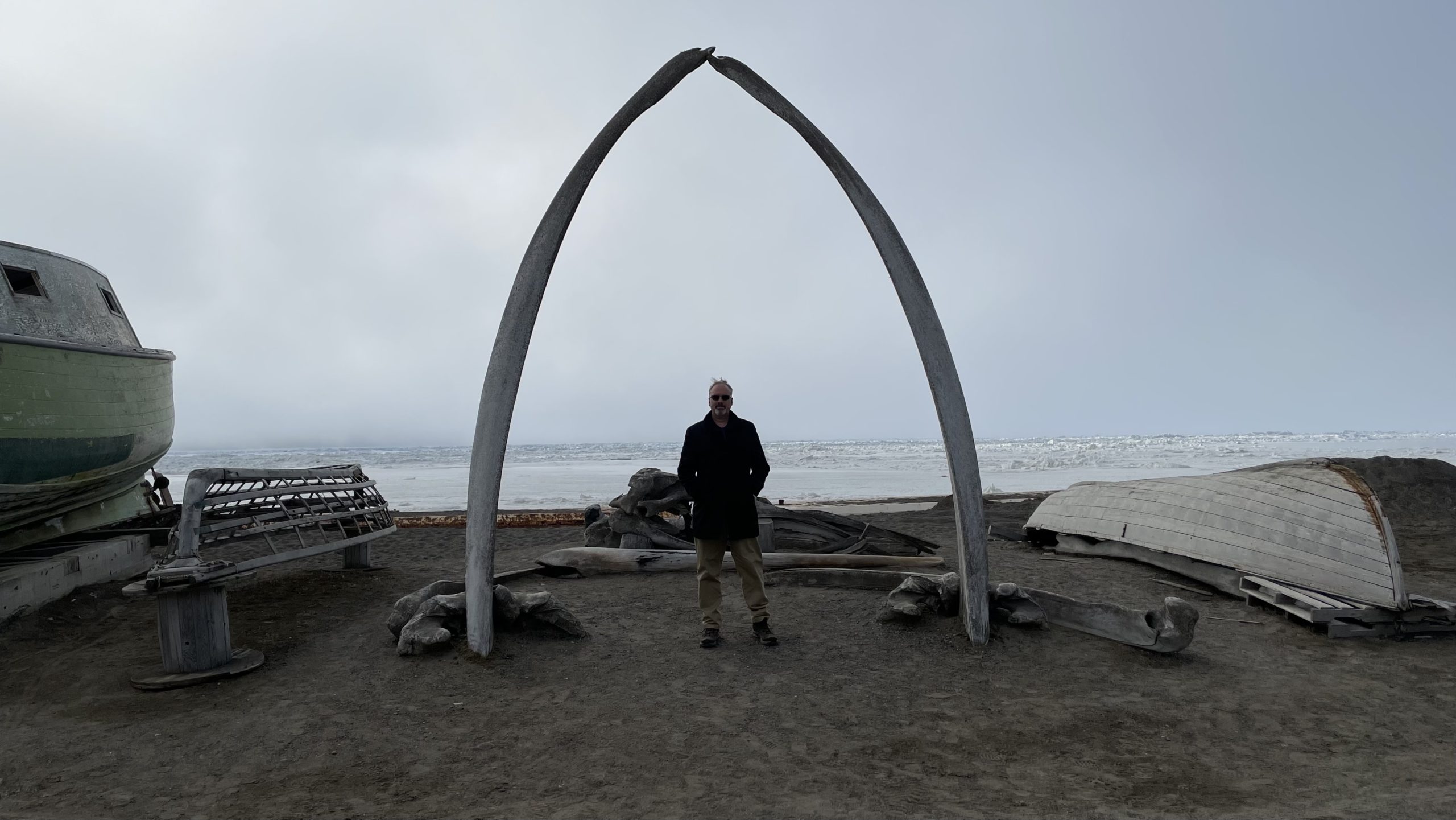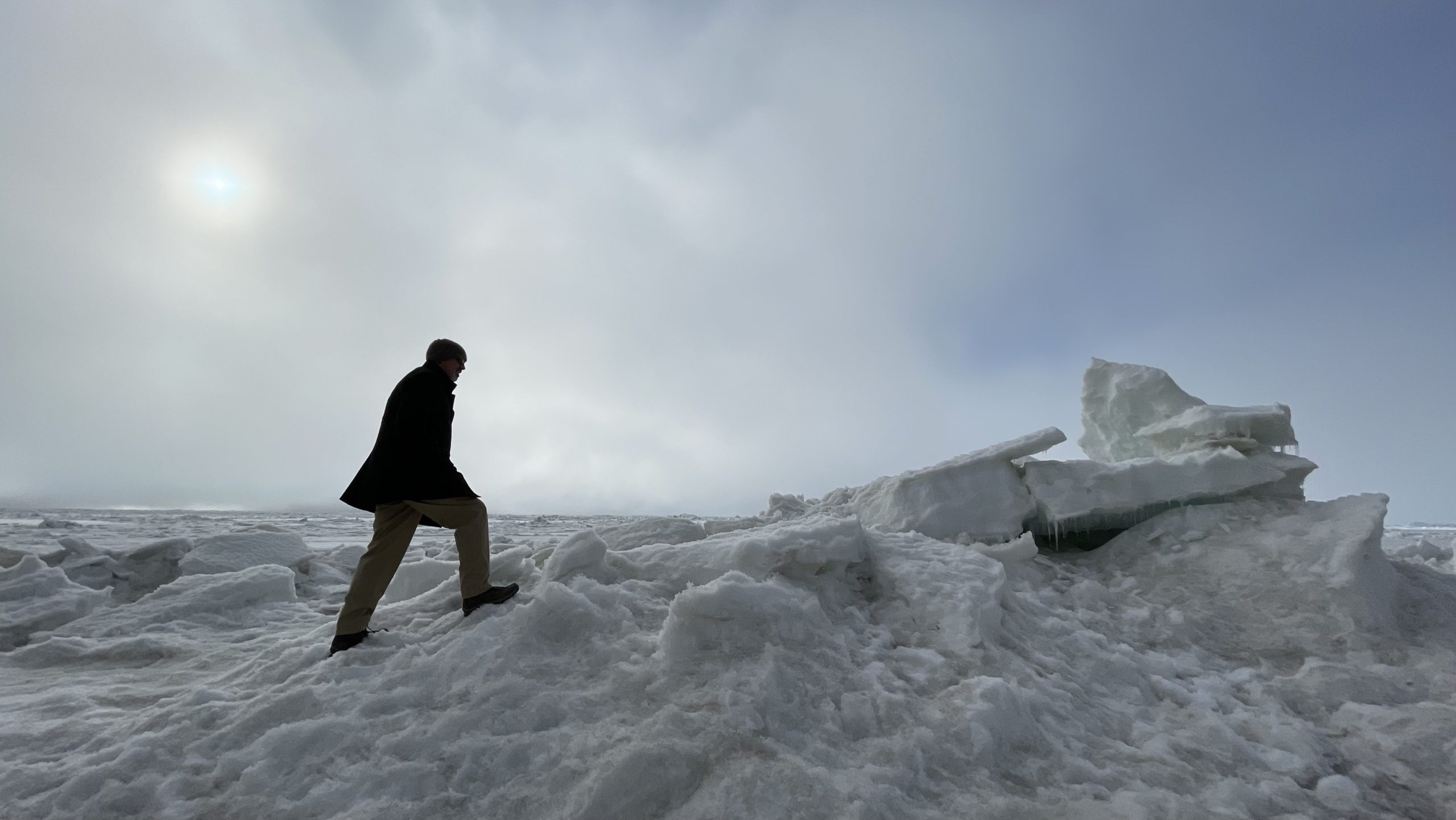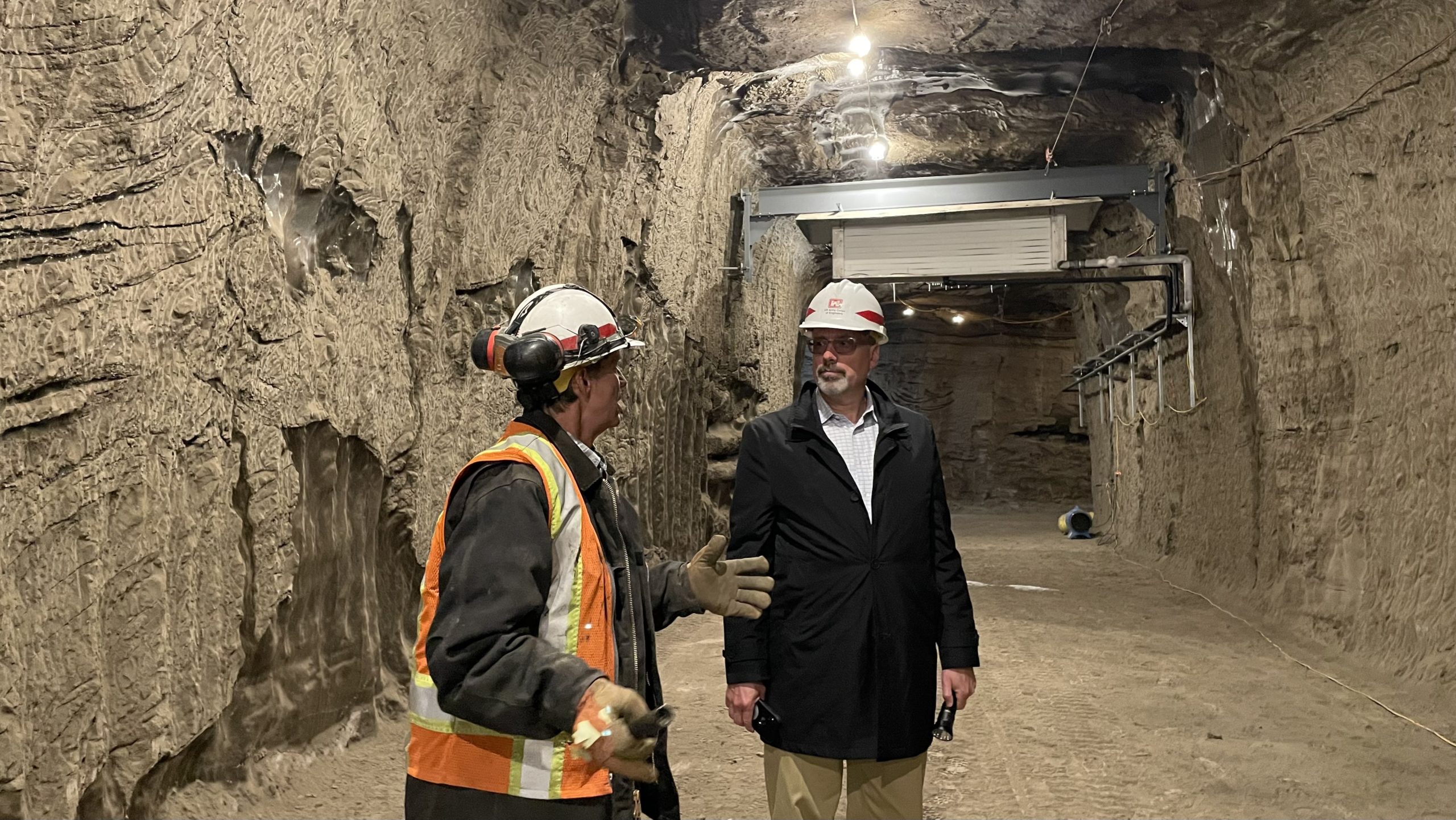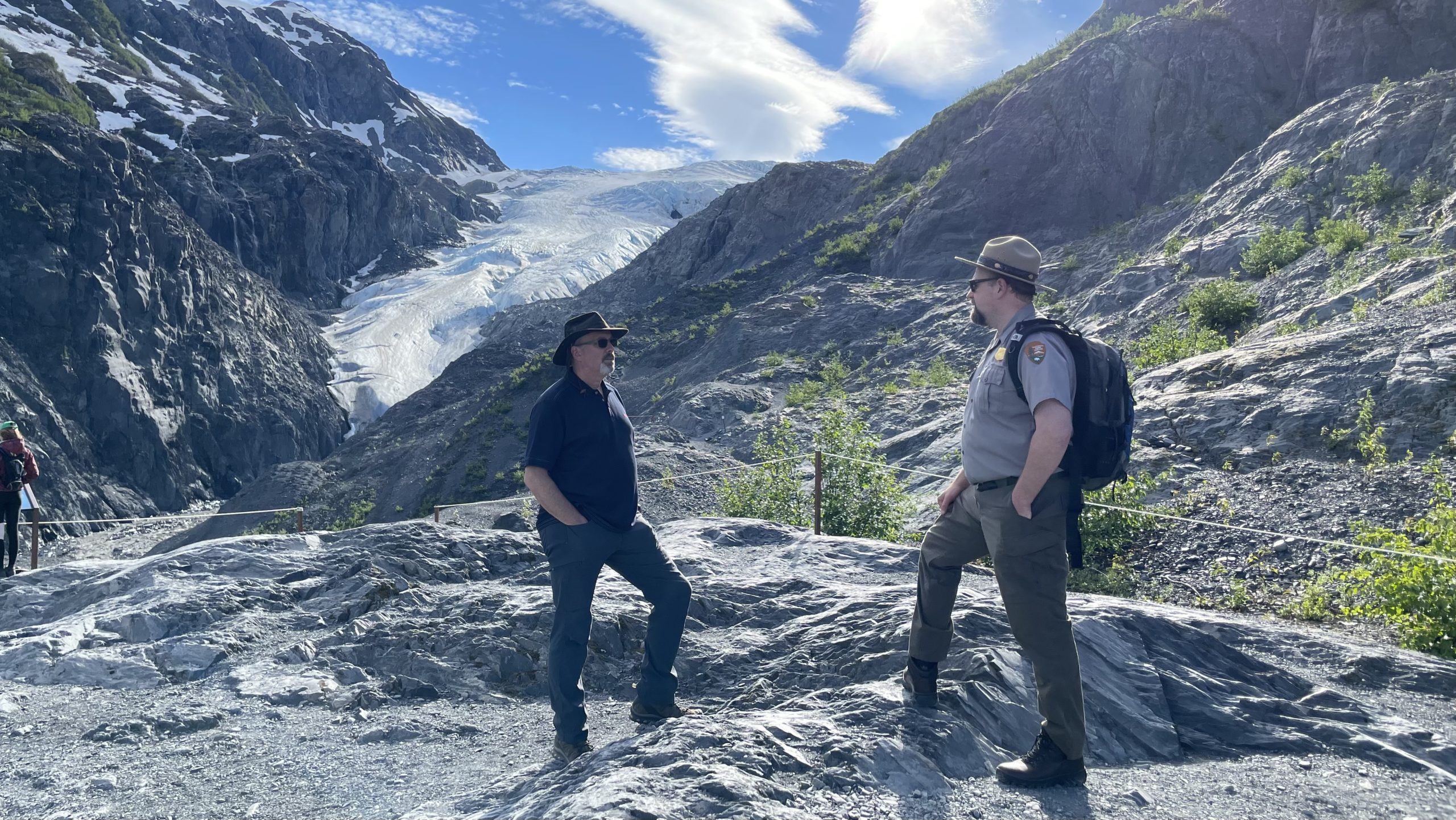For US Arctic coordinator, Alaska trip shows importance of local voices in international affairs
It was James DeHart's first trip to the U.S. Arctic.
For James DeHart, the U.S. State Department’s Arctic coordinator, a whirlwind tour of Alaska in earlier this month created some important impressions that will help inform the Biden administration’s policies.
DeHart spent about a week traveling the state from Seward on the Gulf of Alaska coast to Point Barrow, the northernmost point of land in the U.S. It was his first official trip to Alaska in his new role — he was appointed by former President Trump in September — and his first trip to the U.S. Arctic.
Chief among the lessons learned, he said, is the importance of keeping local people involved in the international Arctic policies and decisions. That means working with Alaska and Alaska constituencies — including local government officials, tribes, Native corporations and state leaders — as advisers and partners in cross-border relations, he said.
“Our diplomacy has to be informed by views on the local level, on the subnational level,” he said in an interview on his last day in Alaska.
The exchanges go both ways, he said. “It’s not just our interaction with people in Alaska. It’s how can Alaska connect to our partners overseas,” he said. There are common challenges and opportunities with places like Greenland and Arctic Canada, he said.
[The Trump administration appoints a new State Department Arctic coordinator]
His trip left some strong impressions about life and work in Alaska, he said.
A day’s travel delay in Utqiagvik, where fog grounded air travel, was “a good education” about Alaska life, he said. So was a visit to the Utqiagvik grocery store, where a bottle of orange juice was priced at about $13.
A visit to the University of Alaska Fairbanks equipped him with information about the “fantastic” Arctic research happening there — a lot of it part of international collaborations coordinated through the eight-nation Arctic Council.
“Our new administration is very committed to scientific integrity,” he said. “That applies to the Arctic. The level of science that takes place in the region is virtually the gold standard, I think, and really important when you consider what’s happening with climate.”
A tour of the U.S. Army Corps of Engineers Permafrost Tunnel Research Facility in Fairbanks and to dramatically retreating Exit Glacier at Kenai Fjords National Park in Seward gave him an up-close look at the impacts of climate change.
For DeHart, the Arctic coordinator position is the latest in a diplomatic career that has sent him to different corners of the world — notably to Afghanistan, where he was posted twice.
His position is not that of an Arctic ambassador. The U.S. has never formally had such a position, despite efforts in Congress over the years to create it, most recently a bill introduced in May.
Rather, DeHart said, his position is similar to that held by former Coast Guard Admiral Robert Papp in the Obama administration. He combines outward-facing diplomatic duties on the international stage with management duties inside the U.S. government.
[What the Biden-Putin summit means — and doesn’t mean — for Arctic cooperation]
Internally, agency responsibilities for Arctic work vary widely, including science, environmental protection, economic development, marine safety and national defense, among other subjects.
“We need to have a single comprehensive approach that combines all of these efforts together. That’s where our coordination office comes in,” he said.
Accordingly, his Alaska trip included visits to military sites and to the Department of Energy’s Arctic Energy Office in Fairbanks.
Internationally, U.S. Arctic policies can, in addition to addressing concerns like climate change, help bring some calm to what is otherwise a turbulent relationship with Russia.
The two countries, though adversaries in many areas, can find common ground in the matters taken up by the Arctic Council, where Russia launched its two-year chairmanship at the end of the Reykjavik ministerial meeting in May, said DeHart.
“It’s one of the rare venues now where the U.S. and Russia together with other Arctic Council partners can cooperate and work together constructively.”





